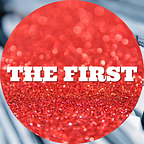Journalists are being silenced in America
Who is and isn’t a journalist?
This question is central to this issue of censorship.
Someone paid to “do journalism” is definitely a journalist.
And community members, like you and me, can and do “commit acts of journalism” across the country each day covering school board meetings and other local government issues as well as building fires and accident. All normal news fare. So they’re journalists, if only part-time or volunteer.
And regardless to their status — professional, part-time, freelancer or even dabbler — they are afforded the full protection of the First Amendment.
But what about students learning journalism? College students working for the school paper? High school students?
The short answer: it’s complicated.
Suffice to say, in many states, student-reporters abandon their First Amendment rights at the school house door.
In Pennsylvania, many schools operate under “prior review” which means administrators may chose to approve or disapprove any issue, article, photo, video, or social media post that could be felt to possible disrupt the learning environment.
At its root, prior review is about control. We’ll happily hand the keys for our SUVs to teens every day, but allowing student-reporters to write news and opinion articles? That’s a bridge too far in some states.
Some individuals and groups are working to undo prior review and the Supreme Court rulings underpinning them. The Student Press Law Center is one group helping:
New Voices is a student-powered nonpartisan grassroots movement of state-based activists who seek to protect student press freedom with state laws. These laws counteract the impact of the 1988 Hazelwood v. Kuhlmeier Supreme Court decision, which dramatically changed the balance of student press rights. New Voices supporters include advocates in law, education, journalism and civics who want schools and colleges to be more welcoming places for student voices.
While I teach high school journalism in Pennsylvania(check out New Voices PA), New Voices legislation is being supported in some of the most conservative states in the union.
Nebraska State Senator Mike Flood eloquently spoke out recently in defense of a New Voices-style piece of legislation.
One last point: my high school students can run a classroom blog, published on the internet for anyone to read without any intervention or monitoring from me, their teacher.
But those same students who write news stories and publish online or in print for the school newspaper must be reviewed prior to publication by an administrator.
It’s time to make things right.
